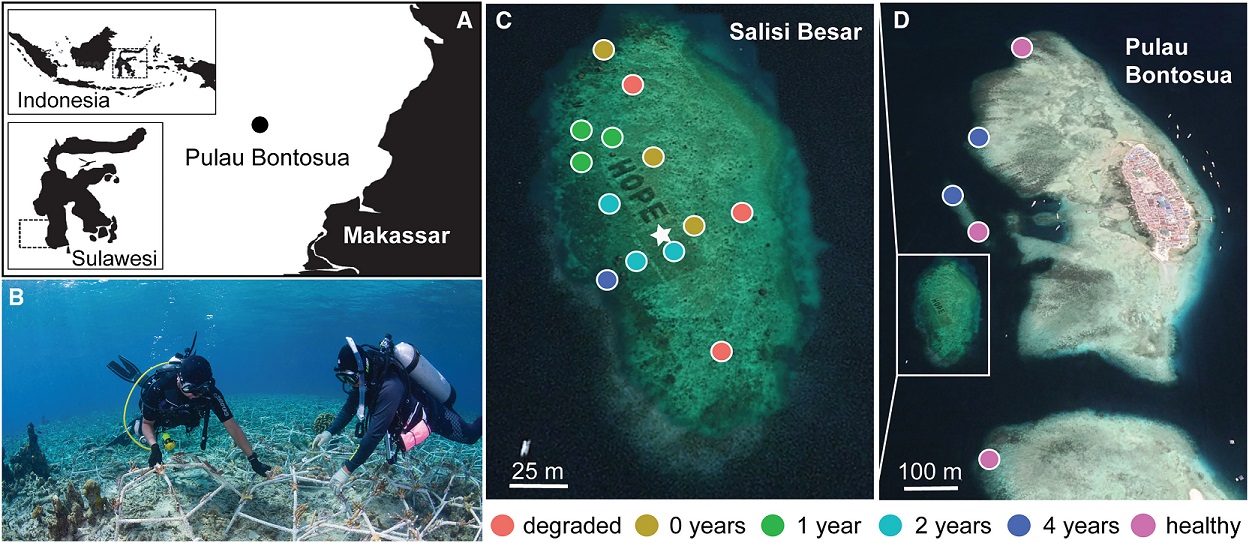Mars Restores Reefs
Reef Stars with attached corals (credit: Mars Coral Reef Restoration)
Mars, the private candy company famous for its chocolate bars and pet food products, supports a little known sustainability project called Build Coral. Its goal is to develop practical and efficient methods to restore damaged reefs around the world. If their initial results can be reproduced at significant underwater scale, Mars will have accomplished a remarkable feat of technology development and marine restoration.
Publishing results of a field demonstration project in Current Biology, their researchers say:
We have demonstrated the potential for large-scale, well-managed coral restoration projects to recover important ecosystem functions within only 4 years. Our findings suggest that large-scale and multi-dimensional reef restoration programs offer short-term options to recover some important functions and thereby increase the reef’s resilience to local (overfishing) and global stressors (sea-level rise).
The demonstration project was conducted on a section of dead reef off the coast of the Indonesian island of Sulawesi. This site was chosen due to the fact its corals had been fully destroyed by 'blast fishing' where dynamite is used to produce an underwater shock wave causing fish to float to the surface where are easily gathered. Reefs are turned into rubble by this practice and have an unstable substrate which prevents young coral polyps from re-establishing.
The Mars team and their research collaborators installed a series of metal frames called Reef Stars which form a network of interconnected polygons positioned on the broken coral beds. Pieces of living coral were affixed to the frames and monitored over a four-year timeline. Measurements were taken of growth rates for the attached corals, the volume of carbonate (coral structural material) expansion, and if any additional re-colonization of local polyps, that floated over the frames might, have occurred. The results were impressive.


Situating a Reef Stars' frame on degraded reef beds with attached coral transplants and a 4-year timeline of re-growth success. (credit: Current Biology)
A presentation by a project manager for the reef restoration program was given at a coral reef conference in Australia to present their challenges, successes, and hopes for the future. Australia's own Great Barrier Reef is in dire need of workable solutions for recovering coral coverage after a series of marine 'heat waves' caused widespread die-offs recently so this was an obvious venue to present the results seen in Indonesia. What still must be determined is whether the 'reef stars' can be economically produced; how fast can they be deployed for damaged reefs elsewhere; who will pay for all the restoration work; and if efforts to reduce greenhouse gas emissions can also show positive reductions.
The coral reef initiative is just one of the diverse sustainability projects Mars is pursuing. For a global company to have such local initiatives is impressive. The environmental, social, and economic situations they are trying to reform will take years to realize and will need partnerships for any hope of success. Buy-ins from the community members; collaborations with other non-profits; governments; and raw ingredient supply chain providers are all required for any chance of success. This is a huge task to transform production systems that have made issues like climate change solutions so challenging to implement.
Smartly, Mars undertook project designs that determined what actually works 'on the ground' and how to incorporate the findings into business operations. The list of their sustainability initiatives is available here. WHB